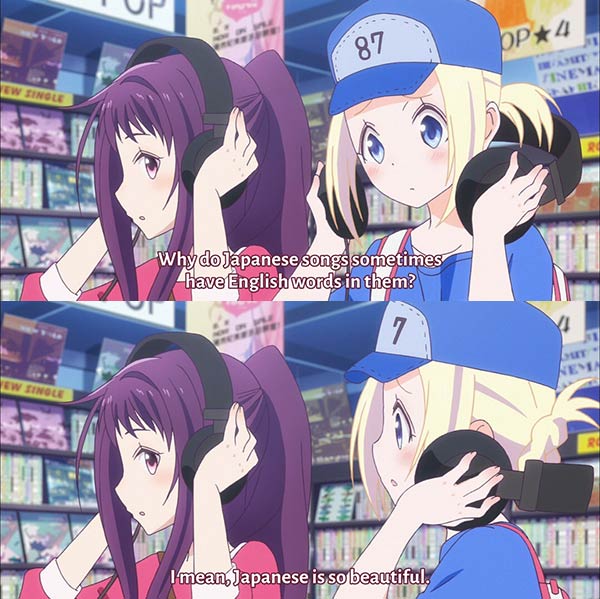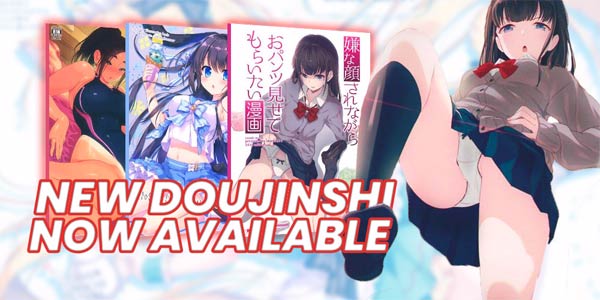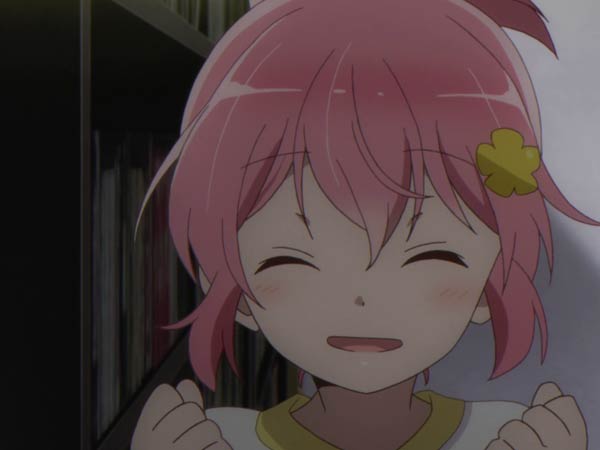J-List is excited about our upcoming Anime Expo, and will have a ton of products for everyone there. We’ll have a huge booth with hundreds of products, the lovely Kaho Shibuya as a guest of honor, and an awesome JAST USA panel where we’ll announce some great new titles. See our blog post for all the juicy details!
There are many things that puzzle us about Japan and anime. Why does the main character always sit by the same window? Why do characters get nosebleeds when they see something sexy? Are bear panties really a thing? Also, why do Japanese songs use English lyrics like “Don’t forget to try in mind!” “You get to burning, going your days grow up!” or “Get chance and luck!” in anime (and JPOP) songs so much? Well, here are some reasons…
- First, the true target audience of anime is elementary school through high school-aged students, the very people who are most likely to be studying English and possibly be influenced by a lyric like “just wild beat, communication!” in an anison.
- English is viewed as a “fun” and positive language by the Japanese, which is why most of the words you’ll hear in songs are generally happy action words like “you wa shock!” or “ready, ready, ready for the take off!” Japanese songs use English to reinforce this positive feeling.
- There’s an inherent “mystery” to foreign languages. When I watched the classic film Godfather II, with its long dramatic scenes in Italian, the version I was watching didn’t have subtitles for the Italian bits, so I had to muddle through without understanding everything perfectly. The result is that Godfather II as an even more amazing and mysterious work in my mind than if I’d had full subtitles. This probably works in Japanese songs to some degree.
- As a Japanese person recently commented to me, “The reason we love English words is that they’re so kakko ii [cool, good style].” Which is probably how most of us feel about Japanese words.
- I’ve heard that the trend of putting English words into Japanese songs was started by legendary singer Matsutoya Yumi—she sings the songs in the subtitled versions of Kiki’s Delivery Service and The Wind Rises—who grew up near Yokota Air Base near Tokyo and was fluent in English since childhood. She started inserting random English phrases into her songs as “emotional snapshots” to make her songs more interesting, and the practice caught on. She also reportedly got ideas for songs by eavesdropping on couples eating in family restaurants and writing her music about the drama they were experiencing in their lives.
Have you ever noticed how Japanese songs use English in anime or JPOP songs you listen to?
J-List always stocks the best doujinshi from Japan, with new offerings from your favorite artists and doujin circles in stock. We made another big update recently, so browse the new books here. We especially love the “Girl Showing her Pantsu To You With a Disgusted Face” by artist 40hara.

















